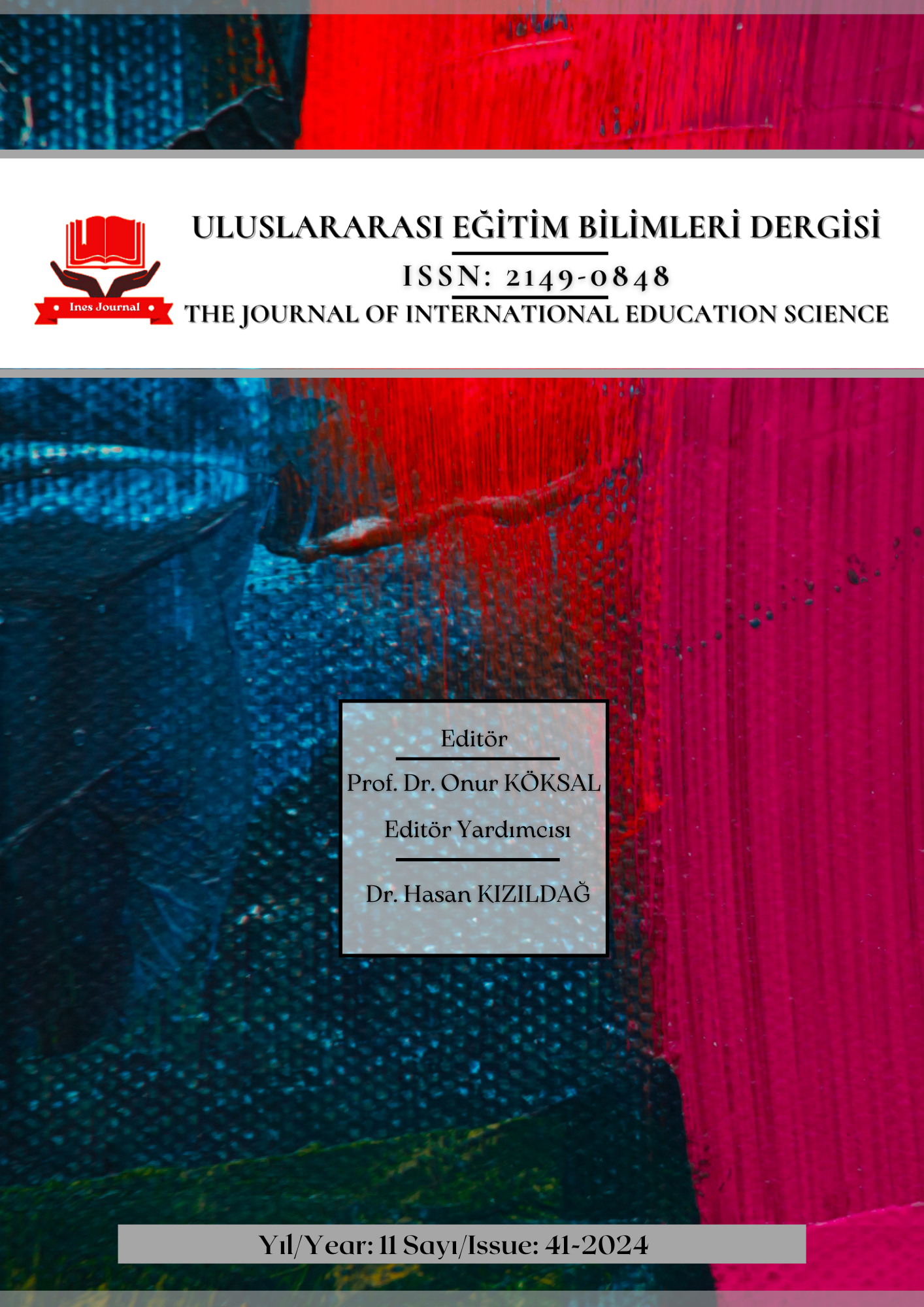Author :
Abstract
Bu çalışmanın amacı, okul öncesi çocuklara yönelik hazırlanan “Evde Bilim Etkinliklerinin” çocukların fen motivasyonu üzerindeki etkisini incelemektir. Araştırmada deneysel çalışmalar arasında yer alan ön test-son test kontrol gruplu desen kullanılmıştır. Çalışma grubu 9’u deney grubu, 9’u kontrol grubu olmak üzere toplam 18 okul öncesi çocuktan oluşmuştur. Veri toplama araçları olarak “Demografik Bilgi Formu” ve “Okul Öncesi Çocuklar İçin Fen Motivasyon Ölçeği” kullanılmıştır. Toplam 10 etkinlikten oluşan “Evde Bilim Etkinlikleri” deney grubundaki çocukların evlerinde, anne-babalar ve araştırmacılar eşliğinde haftada iki etkinlik olmak üzere beş hafta boyunca gerçekleştirilmiştir. Çalışma sonunda deney ve kontrol grubundaki çocukların “Okul Öncesi Çocuklar İçin Fen Motivasyon Ölçeği’nin” “eğlence” boyutu son test puanlarının istatistiksel olarak anlamlı bir fark göstermediği; ancak “özgüven” boyutu son test puanlarının deney grubu lehine istatistiksel olarak anlamlı bir fark gösterdiği belirlenmiştir. Araştırma bulguları ilgili literatürle tartışılmış ve ileriki çalışmalara yönelik önerilerde bulunulmuştur.
Keywords
Abstract
The aim of this study is to examine the effects of “Science Activities at Home” prepared for preschool children on children’s science motivation. The pre-test-post-test control group design, which is among the experimental studies, was used in the research. The study group consisted of a total of 18 preschool children, 9 of whom were in the experimental group and 9 in the control group. “Demographic Information Form” and “Science Motivation Scale for Preschool Children” were used as data collection tools. “Home Science Activities” consisting of a total of 10 activities were carried out in the homes of the children in the experimental group, accompanied by parents and researchers, twice a week for five weeks. At the end of the study, it was determined that the “fun” dimension post-test scores of the “Science Motivation Scale for Preschool Children” of the children in the experimental and control groups did not show a statistically significant difference; however, the “self-confidence” dimension post-test scores showed a statistically significant difference in favor of the experimental group. The research findings were discussed with the relevant literature and suggestions for future studies were made.





